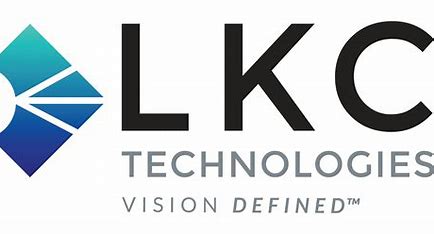

LKC Technologies, a leader in the electroretinography device market, is proud to announce participation in the Diabetic Retinal Disease Clinical Endpoints Workshop of the Mary Tyler Moore Vision Initiative (MTM Vision), which was held in Ann Arbor, Michigan on October 25, 2022. LKC participated along with 94 patients and representatives from JDRF, the National Institutes of Health, American Diabetes Association, US Food and Drug Administration, European Medicines Association, Research to Prevent Blindness, American Academy of
Ophthalmology, DRCR Retina Network, The Glaucoma Foundation, leading pharmaceutical, biotech, and diagnostic device companies, and researchers and clinicians from the United States, Europe, Japan, Singapore, and Australia.
The Diabetic Retinal Disease Clinical Endpoints Workshop is a critical piece of MTM Vision’s response to the generally accepted need to develop new ways to diagnose Diabetic Retinal Disease, assess severity and risk, and predict rate of progression and response to therapy. The workshop identified knowledge gaps in the field and the participants will continue to work in a public-private consortium to develop new endpoints for research and clinical care of patients with diabetic retinal disease.
“We believe that utilizing measures of visual function and quality of life, underlying basic and cellular mechanisms, and attributes of retinal neural and vascular pathophysiology that are not represented on color fundus photographs can contribute to better clinical outcomes and facilitate research, and are undertaking this effort to prove that hypothesis,” says Steering Committee Chairman, S. Robert Levine, MD. Dr. Levine has led the development of the concept for the Mary Tyler Moore Vision Initiative as a way to honor his wife, Mary Tyler Moore, who suffered from vision-stealing diabetic retinal disease. He adds, “With the dedication shown by our collaborative of global experts participating in our Diabetic Retinal Disease Staging System Update and the cross-sector enthusiasm demonstrated for this Diabetic Retinal Disease Clinical Endpoints Workshop, we believe the Mary Tyler Moore Vision Initiative represents the best opportunity available to help solve the challenges of Diabetic Retinal Disease, and lead in facilitating accelerated development of new methods to restore and protect vision in people with diabetes.”
Two LKC representatives were invited to contribute to the Visual Function and Retinal Physiology Endpoints breakout session. LKC President, James Datovech, who attended the session commented: “Attending this event truly affirms what LKC has been advocating for years, namely that functional testing in diabetic eye disease is an integral piece of the diagnostic and management challenge that cannot be met with structural measures alone.”
“We’ve understood the value of electrodiagnostic testing for a long time, but many of us put off integrating ERG testing into practice because we didn’t have a reliable, portable device like the RETeval® that’s easy to interpret and provides actionable information,” says Paul Chous, MA, OD, FAAO, of Chous Eye Care Associates in Tacoma, WA. “Doctors of Optometry examine the majority of patients with diabetes in the US and the release of the Diabetic Retinopathy Progression Risk Assessment represents a significant tipping point in how we can provide optimal care for our growing population of these patients and it’s clear that the clinical community is taking notice and calling for change.”
About LKC Technologies
LKC Technologies® is a 46-year veteran of visual electrophysiology (ERG), with more than 2,000 RETeval® devices installed worldwide in research settings, as well as ophthalmology and optometric practices. LKC technology is supported by more than 120 peer-reviewed publications. Our RETeval®, hand-held ERG is the only FDA cleared device for ERG testing on dilated and un-dilated patients. It was designed to streamline clinic operations and simplify testing for staff and patients alike.
Photo credit: LKC Technologies LinkedIn



